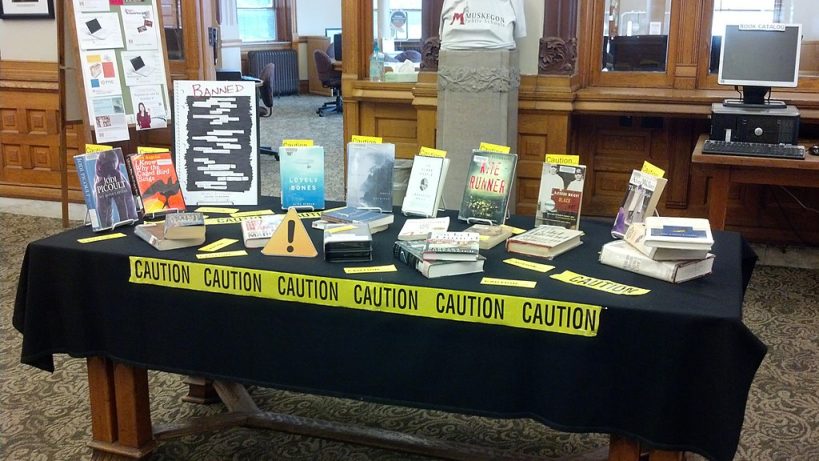Table of Contents
- Introduction
- Burning Books 213 B.C.
- Persecuting Philosophers
- Banned Books & Bible
- Books lost forever
- Inquisition Censorship
- Index Librorum Prohibitorium
- Copernicus & Galileo
- Darkness in Enlightenment
- Revolution & Banned Books
- Colonialism & Book Bans
- New Nation Censorship
- Nazi Germany Book Burning
- USSR Banned Books
- McCarthyism Book Banning
- 21st Century Book Bans
- Banned Books Battles
- Digital Age Book Banning
- World Wide Book Banning
- Book Banning is Bad
- The Future of Book Banning
- Looking Back in History
- Discover New Worlds
Book banning is bad
Banned Books are Censored books

Imagine walking through a library. Empty shelves surround you. Many books are gone, labeled ‘dangerous’ or ‘inappropriate’ by an unseen authority. It might feel like a scene from a dystopian novel. However, for many, book banning is a real and damaging reality. It threatens our right to freedom of speech.
Book banning means censorship. It silences voices and ideas. Banned books interrupt the free flow of information crucial for a thriving democracy. When we ban books, we lose more than compelling stories or powerful arguments. We miss the opportunity for deep conversations about complex global issues.
Think about it. Banning books on topics like racism or political dissent slows societal growth. This censorship stops us from facing harsh truths, accepting different viewpoints, and questioning our biases. Instead of encouraging open dialogue, it promotes a culture of fear and conformity.
Additionally, book banning limits authors. Fear of censorship can make them self-edit, curbing their creativity. This loss affects both writers and readers. The literary world becomes less diverse, robbing readers of stories that might mirror their own experiences.
Moreover, who decides what we should read? Book banning places this power in a few hands. This challenges the democratic idea that everyone deserves access to information and should form their opinions.
Yet, there’s hope. Many oppose book banning. Librarians, readers, and organizations push back against censorship. They fight for our freedom to read and ensure that literature stays a space for open discussion.
Moving forward, we must keep talking about book banning. Let’s dive into challenging books, discuss the reasons behind their bans, and advocate for everyone’s access to the vast human knowledge and imagination.